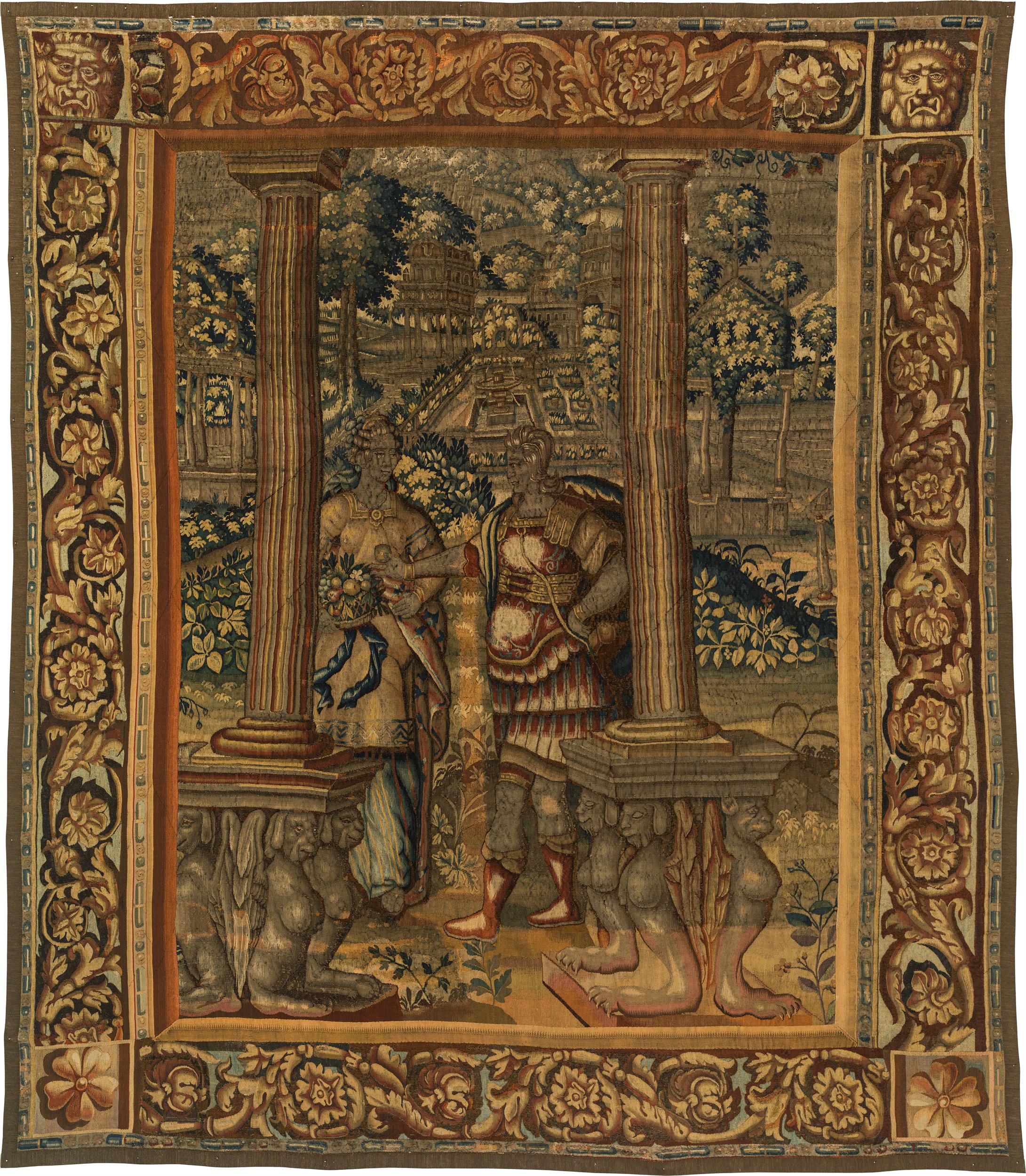0033
„Vertumnus and Pomona in a lush Garden, framed by two Columns supported by fantastical creatures“
17th century
tapestry
c. 270 x 234 cm
Provenance
collection Erna Weidinger (1923–2021)
Estimate: € 5.000 - 10.000
Result: € 3.840 (incl. fees)
Auction is closed.
Ovid describes the love story of Vertumnus and Pomona in his Metamorphoses (Book XIV:623-771). Pomona, the goddess of fruit, was courted by various forest gods but had always rejected their advances. Vertumnus approached the choosy goddess in various disguises in an attempt to win her over: as a fruit picker, a gardener, a fisherman, a knight and finally as an old woman. After all kinds of transformations and with the help of his powers of persuasion, he finally succeeded in winning the beautiful Pomona over.
Pomona's encounters with the ever-changing Vertumnus were a popular subject in the 16th and 17th centuries to stimulate discourse with the educated viewer - a prime example being Giuseppe Archimboldo's depiction of "Emperor Rudolf II as Vertumnus" (c. 1590), composed of a wide variety of vegetables and fruits. The imaginative, one-footed mixed creatures with breasts, wings and dog-like heads that frame the scene on this tapestry probably underline the diversity and mutability of nature.
Especially in the decorative, monumental realisation as a tapestry, the theme was preferably chosen to depict magnificent gardens in interiors as well - virtually to combine art and nature in a room-filling experience. One of the most famous tapestry series of the Vertumnus and Pomona theme was designed for Mary of Hungary as early as around 1550 and woven in Brussels - the nine-part series has been preserved in the Imperial Collections in Vienna, among others, cf. KHM Kunstkammer, inv. no. TXX/4 (Sabine Haag (ed.), Fäden der Macht, exhibition catalogue, 14 July - 20 September 2015, Kunsthistorisches Museum, Vienna 2015, pp. 106-112). The theme was subsequently developed and worked on preferably in Flemish workshops.

